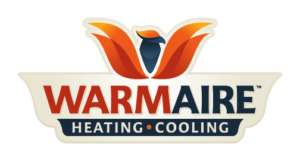Common Winter Heating Problems in Northern NJ and How to Fix Them
Winter in Northern New Jersey can be harsh, with freezing temperatures and heavy snowfall. During these months, your heating system becomes the most important appliance in your home. However, with increased usage comes the potential for problems. At Warmaire Conditioning, we understand how frustrating it can be when your heating system isn’t performing as it should. That’s why we’ve compiled a list of common winter heating problems and how to fix them, so you can stay warm and comfortable all season long.
1. Uneven Heating Throughout the Home
Problem:
One of the most common issues homeowners face during winter is uneven heating. Some rooms in your home may feel warm and cozy, while others remain chilly.
Solution:
Uneven heating can be caused by various factors, including blocked vents, ductwork issues, or a poorly calibrated thermostat. Start by checking that all vents are open and unobstructed. If the problem persists, consider having your ductwork inspected for leaks or blockages. Additionally, ensure your thermostat is correctly calibrated. If your home uses a zoned heating system, make sure each zone is set to the desired temperature.
2. Furnace Blowing Cold Air
Problem:
Another common issue is a furnace that blows cold air instead of warm air. This can be particularly frustrating when the temperature outside is dropping.
Solution:
Several issues can cause a furnace to blow cold air, including a malfunctioning thermostat, a clogged air filter, or an extinguished pilot light. First, check the thermostat settings to ensure it’s set to “heat” and not “cool.” If the air filter is dirty, replace it to improve airflow. For gas furnaces, check the pilot light to see if it’s lit. If the pilot light is out, relight it according to the manufacturer’s instructions. If these steps don’t resolve the issue, it’s best to call a professional HVAC technician for further diagnosis.
3. Frequent Cycling of the Heating System
Problem:
If your heating system frequently turns on and off, a problem known as “short cycling,” it can reduce the efficiency of your system and increase wear and tear on its components.
Solution:
Short cycling can be caused by an oversized furnace, a dirty air filter, or a malfunctioning thermostat. Begin by replacing the air filter to ensure proper airflow. Next, check the thermostat to see if it’s working correctly. If the issue continues, it may be due to an oversized furnace that’s too powerful for your home, causing it to reach the set temperature too quickly. In this case, consult with an HVAC professional to discuss potential solutions, such as installing a more appropriately sized system or adjusting the thermostat settings.
4. Noisy Heating System
Problem:
Strange noises coming from your heating system, such as banging, rattling, or squealing, can be alarming and indicate that something is wrong.
Solution:
Different noises can point to different issues. Banging or popping sounds may indicate that the ductwork is expanding and contracting as it heats and cools, which is generally normal but can be reduced by insulating the ducts. Rattling noises may suggest loose components that need tightening, while squealing sounds often indicate a problem with the blower motor or belt. If you hear any unusual noises, it’s important to have your system inspected by a professional to prevent further damage.
5. High Energy Bills
Problem:
If you notice a sudden spike in your energy bills during the winter months, it could be a sign that your heating system is not running efficiently.
Solution:
High energy bills can result from several factors, including a dirty air filter, poor insulation, or an aging heating system. Start by replacing the air filter and checking your home’s insulation, particularly in the attic and around windows and doors. If your heating system is old, it may be time to consider upgrading to a more energy-efficient model. Regular maintenance, such as annual inspections and tune-ups, can also help keep your system running efficiently and reduce energy costs.
Conclusion
Winter heating problems are not only inconvenient but can also lead to higher energy bills and costly repairs if left unaddressed. By understanding the common issues that can arise during the winter months and how to fix them, you can keep your home warm and comfortable all season long. If you encounter any of these problems and need professional assistance, don’t hesitate to contact Warmaire Conditioning. Our experienced HVAC technicians are here to help you with all your heating needs.
Contact Warmaire Conditioning today to schedule a service and ensure your heating system is running smoothly this winter!
